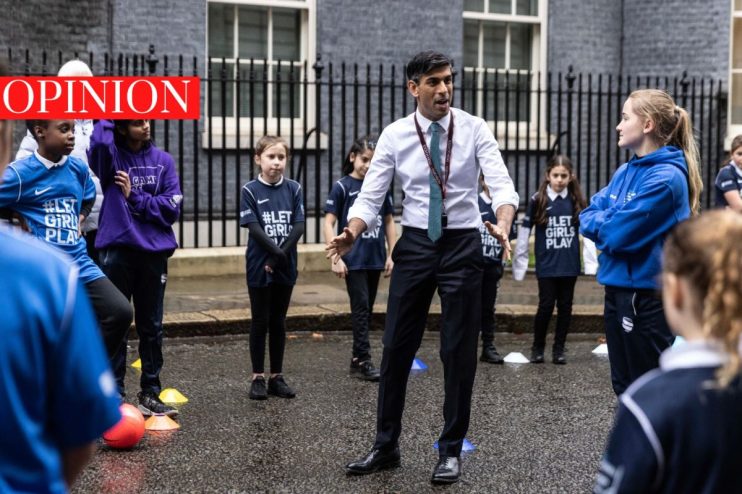A culture secretary who has never been to a football match is a welcome relief

Our obsession with football in politics has given it an outsized dominance in the Culture Secretary’s brief, writes Eliot Wilson
I don’t think it was marked by anyone, but last year was the 30th anniversary of the creation of a separate culture ministry in Whitehall. After unexpectedly winning the 1992 general election, John Major established the Department of National Heritage and sent the ill-fated David Mellor to run it. Mellor dubbed himself “minister for fun”, and was forced to resign over a sex scandal within six months.
Last week there was confected outrage when The Sun “revealed” that the new shadow culture secretary, Bristol West MP Thangam Debbonaire, had never been to a football or a rugby match. Improbably, the paper compared this lack of experience to Grant Shapps’s recent appointment as defence secretary. But does it actually matter that an aspiring cabinet minister whose brief would include sport has never been to a match?
It was Tony Blair who rebranded “National Heritage” as the much more Britpop Department for Culture, Media and Sport in 1997. A newly self-confident Britain was finally ready to embrace the word “culture”, and at that time the term seemed suddenly broad, open and generous. The National Gallery, yes, but also the Young British Artists, or Oasis, or Irvine Welsh: it was Cool Britannia, not yet ironic.
A lot has changed since the department’s peak, roughly 1997 to 2005 (when the IOC awarded London the 2012 Olympics). The secretaries of state were Chris Smith, the first openly gay MP, who had a PhD in English literature and a deep love for the arts, then the more briskly nannyish Tessa Jowell. She stayed for six years and did a lot of administrative work like overhauling the National Lottery and restructuring the governance of the BBC. Gradually, though, the air of civilised erudition went out of the department, and its priorities began to change.
The Olympics overshadowed everything else, understandably, until 2012. In 2015, there was another behemoth in view: responsibility for the digital economy, previously shared with the Department for Business, Innovation and Skills, moved wholly into DCMS. In 2016 it was put in the eager hands of Matt Hancock as minister for digital and culture; he was an enthusiast, “a Tigger in a world of Eeyores”, as George Osborne put it, and the first MP to launch his own app. “Digital” was added to the department’s name in 2017, and Hancock soon moved up to become secretary of state, albeit briefly.
Digital policy was the cuckoo in the DCMS nest until the creation of a new department to cover science and technology this year. It was an awkward fit among arts funding, the National Lottery and grants to amateur sports teams: high-speed broadband, the 5G network and cyber security gave the department a stake in critical national infrastructure, while responsibility for technology, artificial intelligence and online safety introduced another circle to the Venn diagram. But DCMS is small, and between 2017 and 2023 it had seven different secretaries of state, so it was never able to be a major force in Whitehall.
Its new, streamlined responsibilities, which are restored more or less to the glory days of the late 1990s, will hopefully create a more balanced portfolio. As it happens, sport will be a substantial piece of work: the department published a white paper on the future of club football governance earlier this year and expects to produce legislation at some point.
But Debbonaire is at no disadvantage for having never been to a football match. In fact, her relative ignorance might allow her to take a more holistic view of the brief, of which sport is only one element. Indeed, the offside rule notwithstanding, football is not a difficult game to understand, and having responsibility for its future governance does not require her to take a view on whether Hurst’s second goal in the 1966 World Cup final did indeed cross the line. There is a junior minister to look after the sport brief more directly (currently Stuart Andrew), and if Debbonaire does become culture secretary, she can be assured of no shortage of invitations to football and rugby matches.
Rishi Sunak himself fell foul of the football faction of politicos after his message
Reframe the story. Would there be tabloid outrage if a potential culture secretary had never been to a Hockney exhibition? All this has demonstrated is the inexplicable height of the pedestal we have elevated football onto in our politics. Certainly we have a problem of experience in our politics, and Keir Starmer’s recent reshuffle was an effort to have his team fronted up by sensible minds. Let us judge Debbonnaire on that criterion.